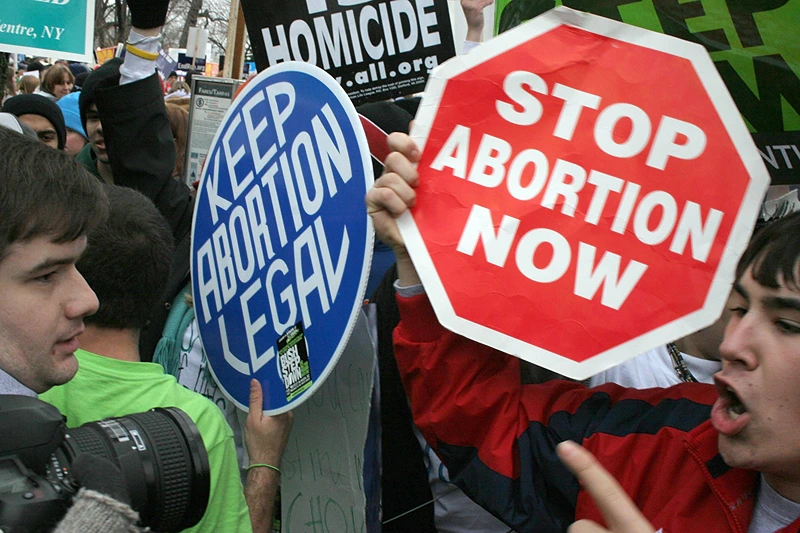
OAN’s Brooke Mallory
5:25 PM – Friday, January 5, 2024
On Friday, the Supreme Court rejected a Biden administration attempt to guarantee easier access to abortion in hospitals in red states by allowing Idaho to continue enforcing its restriction on the operation in emergency rooms.
Just over a year after Roe v. Wade was overturned, the court decided to hear arguments in the case this spring, bringing a second significant abortion issue before the justices.
According to Idaho law, a doctor cannot perform an abortion procedure unless they can prove that the mother’s life is in danger.
The Biden administration asserted that emergency departments are required by separate federal legislation to offer “stabilizing care,” which includes abortions, in a wider range of situations, such as when a patient’s health is in “serious jeopardy.”
A significant claim in the case was made when the Supreme Court reversed Roe v. Wade last year. Even after that, there are still a lot of unresolved legal issues over the process that are currently pending in federal courts.
A conservative appeal against the Food and Drug Administration’s (FDA’s) long-standing clearance of the abortion drug mifepristone has already been accepted by the Supreme Court.
The federal legislation at issue in this case mandates that hospitals receiving government funds, such as those provided by Medicare, give patients stabilization treatments even if they are unable to pay for it. The goal was to “guarantee that all patients would receive basic medical treatment” in hospitals.
Following the Roe v. Wade ruling by the Supreme Court, the Biden administration declared that federal law mandates hospitals to give expectant patients the same treatment, including the option to have an abortion if required, even in states where the procedure is prohibited.
Idaho officials say that the Medicare law is being interpreted as a “federal super-statute on the issue of abortion, one that strips Idaho of its sovereign interest in protecting innocent human life and turns emergency rooms into a federal enclave where state standards of care do not apply.”
However, according to the Justice Department, the guideline just clarifies already-existing federal law. Federal officials maintain that state laws prohibiting abortion that took effect last year are superseded by that federal legislation.
Pregnancy can cause serious medical issues in some women, such as sepsis, uncontrollable bleeding, renal failure, and loss of fertility, which would not be covered under provisions for the life of a mother.
Idaho was backed by twenty conservative states, many of which had strong abortion prohibitions. However, the recommendation from the Biden administration may possibly affect more states than just conservative ones with stringent limitations.
Those with more generous exemptions than Idaho’s, or those without outright bans on abortion, may also be impacted. Even if their state legislation would normally permit abortions, religiously affiliated institutions that accept federal financing but refuse to perform them are subject to the federal statute in question.
Earlier this month, a federal appeals court in California temporarily ruled with the Biden administration, preventing the implementation of the relevant portions of the Idaho statute. The Supreme Court’s decision merely resolves the issue temporarily and forbids the Idaho law’s execution while the underlying legal dispute is resolved in the lower courts.
Stay informed! Receive breaking news blasts directly to your inbox for free. Subscribe here. https://www.oann.com/alerts

